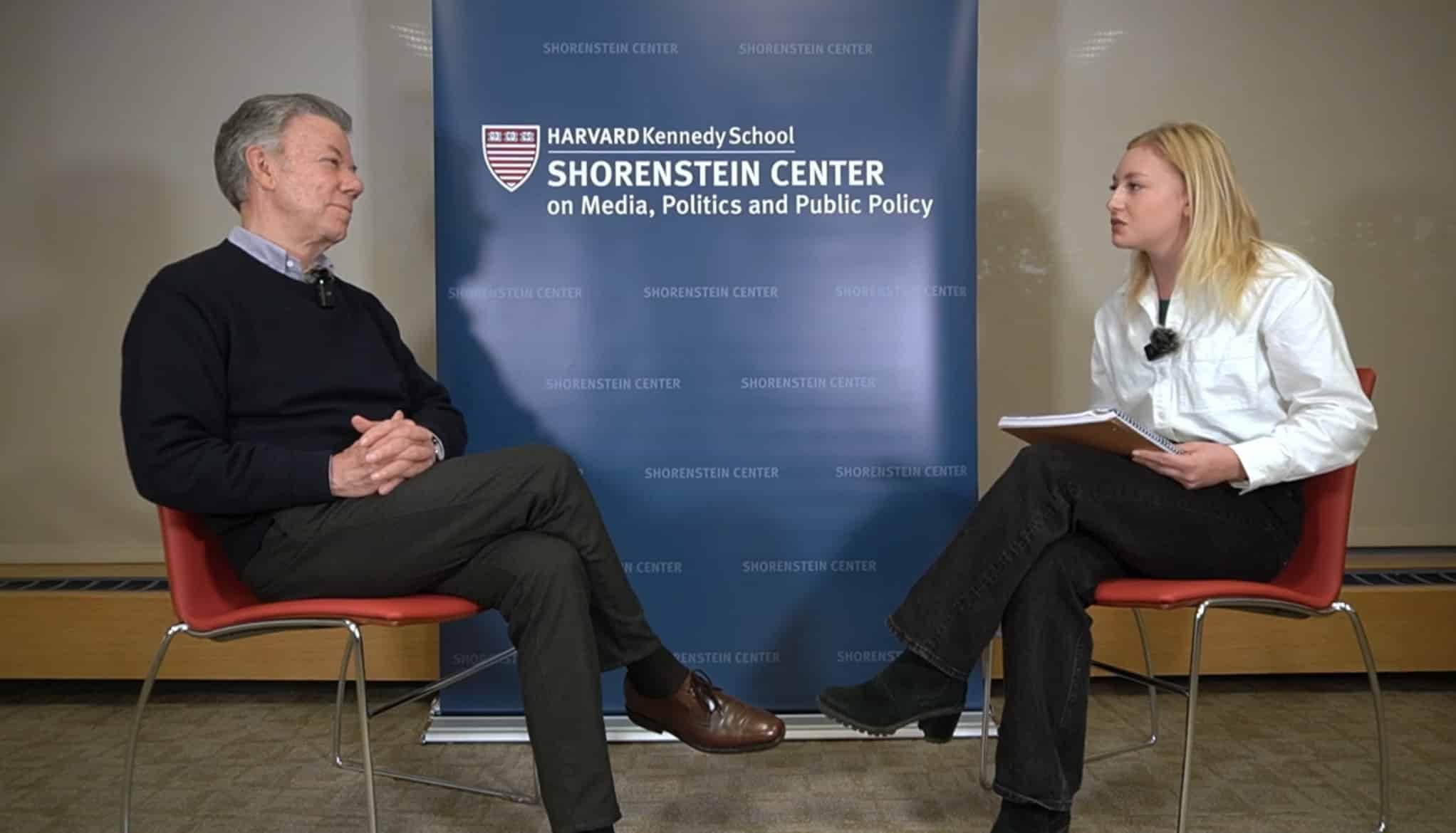On November 13, 2023, HKS Student Policy Review Senior Editor Jane Petersen spoke with former Colombian President Juan Manuel Santos. The conversation covered a range of topics including what other countries can learn from Colombia’s peace agreement, poverty alleviation efforts, and the fight against climate change.
Juan Manuel Santos was the President of Colombia, from 2010 to 2018, where he managed to significantly improve his country’s social and economic indicators. He was one of the initial promoters of the Sustainable Development Goals (SDGs) that became the world agenda in 2015 (he officially proposed them in the Rio+20 Summit in 2012). He also led the process to convene a special session of the General Assembly of the United Nations (UNGASS 2016) to discuss more effective ways to face the world drug problem. He was one of the founders and architects of the Pacific Alliance.
He was the sole recipient of the Nobel Peace Prize in 2016 for ending the longest armed conflict with the oldest guerrilla in the Western Hemisphere (his resolute efforts to bring the country’s more than 50-year-long civil war to an end). He was also awarded the Lamp of Asis by the Catholic Church and the Tipperary International Peace Award in Ireland for his efforts to bring peace to his country and the region.
For his aggressive environmental policies to protect his country’s biodiversity and fight climate change, he was awarded the Royal Botanic Gardens Kew International Medal and the Wildlife Conservation Society Theodore Roosevelt Award for Conservation Leadership. In addition, the National Geographic Society honored him for his for unwavering commitment to conservation and Conservation International awarded him the Global Visionary Award.
His innovative and successful policies to fight poverty and inequality earned him the appointment as co-founder of the Multidimensional Poverty Peer Network (MPPN) by the Oxford Poverty and Human Development Initiative (OPHI), along with his former professor and inspirer of his policies, Economics Nobel Laureate Amartya Sen.
